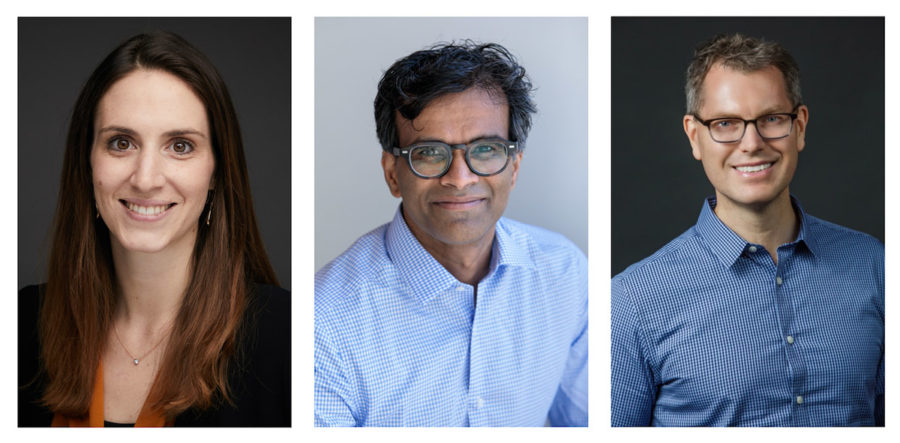On Thursday, April 1, the University of Massachusetts hosted a panel discussion titled, “What is Computational Social Science,” an event where three panelists explored the field and answered questions from the audience in a live Q&A session.
Hosted by the UMass Computational Social Science Institute (CSSI), the panel consisted of Sandra Matz, David W. Zalaznick Associate Professor at Columbia Business School, Sendhil Mullainathan, Roman Family University Professor of Computation and Behavioral Science at the University of Chicago Booth School of Business, and Duncan Watts, Stevens University Professor and 23rd Penn Integrates Knowledge (PIK) Professor at the University of Pennsylvania.
Hosted by David Jensen, professor of computer science and the director of the Computational Social Science Institute, the webinar began with Watts presenting “Computational Social Science: Past, Present, and Future.” Watts defined Computational Social Science (CSS) as “being driven by the data,” and highlighted the power of digital technology in the field and the changing realm of experiments and models.
Watts also noted the history of CSS, referencing events such as the founding of Facebook, Twitter and numerous papers redefining CSS. He cited changes in “Big Data,” referencing data mining, networks, online cascades and media consumption.
Watts went into the expansion of design spaces due to virtual labs. “We’re able to design experiments that would have been inconceivable in a physical lab space,” explained Watts. From an academic perspective, Watts talked about the growth of CSS as a field. “It really is succeeding as an interdisciplinary field.”
“There’s been a rapidly growing interest in computational social science,” Watts said. He explained, however, that there are important challenges that need to be taken seriously. Watts focused on three areas with such challenges: research design, data collection and rethinking the model of social science to a “solution-oriented science.”
Matz continued the discussion by discussing her personal connection to the field and the research that she’s undertaking. She talked about her psychology background and how it connects to her work today, as well as how big data has changed the field.
“It is a different way of how we come up with questions and how we can test them,” she said.
Matz also talked about how social phenomena is “noisy” and more complex than bigger picture pieces. “We have to think about effect sizes differently,” Matz said.
She also referenced the growing interdisciplinary focus of CSS. “It’s unlikely that you can be an expert in everything,” Matz said. “But what you need to do, is you need to speak the language so you can get the right people on board.”
Mullainathan joked that “this is a really great time to be a PhD student.” He talked about how the field is “exploding,” describing the field as “exponential” and comparing it to the growth of the internet. “This is a beginning,” Mullainathan said.
He described the growth of the tools in CSS as “shrapnel,” referencing how the field was interdisciplinary rather than a single discipline. Mullainathan also described many fields as having an “immune system,” blocking out many ideas that it does not see as friendly.
“We have no idea what is going on,” Mullainathan said, discussing how prediction versus causation can result in varying degrees of acceptance.
“How do we define what truth is?”
Following their discussion, the panelists fielded questions from the audience. Questions circled around topics such as collaboration across fields, CSS publications in journals, structural changes regarding predictions and what to do with findings from big data.
Alex Genovese can be reached at [email protected] and followed on Twitter @alex_genovese1.




















